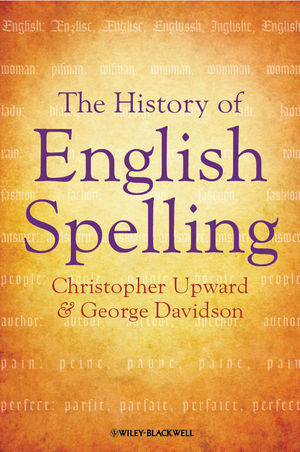- HOME
- INTRO TO THE FORUM
- USE AND MISUSE
- BADLY WRITTEN, BADLY SPOKEN
- GETTING
TO KNOW ENGLISH - PREPARING FOR ENGLISH PROFICIENCY TESTS
- GOING DEEPER INTO ENGLISH
- YOU ASKED ME THIS QUESTION
- ADVOCACIES
- EDUCATION AND TEACHING FORUM
- ADVICE AND DISSENT
- MY MEDIA ENGLISH WATCH
- STUDENTS' SOUNDING BOARD
- LANGUAGE HUMOR AT ITS FINEST
- THE LOUNGE
- NOTABLE WORKS BY OUR VERY OWN
- ESSAYS BY JOSE CARILLO
- Long Noun Forms Make Sentences Exasperatingly Difficult To Grasp
- Good Conversationalists Phrase Their Tag Questions With Finesse
- The Pronoun “None” Can Mean Either “Not One” Or “Not Any”
- A Rather Curious State Of Affairs In The Grammar Of “Do”-Questions
- Why I Consistently Use The Serial Comma
- Misuse Of “Lie” And “Lay” Punctures Many Writers’ Command Of English
- ABOUT JOSE CARILLO
- READINGS ABOUT LANGUAGE
- TIME OUT FROM ENGLISH GRAMMAR
- NEWS AND COMMENTARY
- BOOKSHOP
- ARCHIVES
Click here to recommend us!
READINGS IN LANGUAGE
This section features links to interesting, instructive, or thought-provoking readings about the English language and related disciplines. The selections could be anywhere from light and humorous to serious and scholarly, and they range widely from the reading, writing, listening, and speaking disciplines to the teaching and learning of English.
“Bogus controversy” pitting prescriptivists vs. descriptivists decried
In “False Fronts in the Language Wars,” an article he wrote for the May 31, 20112 issue of Salon.com, American linguist Steven Pinker accuses The New Yorker magazine and other writers of pushing bogus controversies in the supposed clash between “prescriptivist” and “descriptivist” theories of language. He particularly lambasts what he calls the “volley of grapeshot” fired by New Yorker dance critic Joan Acocella at the Fifth Edition of the American Heritage Dictionary and at the book The Language Wars, a new history of the controversy by the journalist Henry Hitchings. Pinker accuses Acocella of torturing quotations from several writers—among them H.W. Fowler who wrote the 1926 classic A Dictionary of Modern English Usage, E.B. White who coauthored the hugely popular Elements of Style, the late language maven William Safire, and Pinker himself as chair of the American Heritage Dictionary’s Usage Panel—so she can mock them as “prescriptivist toffs” (dandies) or “descriptivist bohos” (bohemians). “What’s going on at The New Yorker?” Pinker asks. “How could a magazine that cultivates a reputation for assiduous fact-checking publish a screed that is so filled with blunders, non sequiturs, and fanciful attributions?”
Read Steven Pinker’s “False Fronts in the Language Wars” in Salon.com now!
OTHER INTERESTING READINGS:
In “The myth of English as a global language,” an article that came out recently in The Times Literary Supplement, writer Tom Shippey reviews Richard J. Watts’s Language Myths and the History of English (Oxford University Press, 352 pages) and Christopher Upward and George Davidson’s The History of English Spelling (Wiley-Blackwell, 392 pages). Watts’s book aims to correct what he sees as an interlocking and mutually reinforcing system of myths about English—myths that he asserts have been deployed in the service of elitist and often nationalist ideology. “The trouble is,” Shippey observes, “one person’s myth is someone else’s securely established datum, and vice versa.” On the other hand, Upward and Davidson’s book offers a large collection of data showing how words were spelled in Old and Middle English and how English dealt with Franco-Latin words and other exotic inputs.

Read Tom Shippey’s “The myth of English as a global language” in The Times Literary Supplement now!
In “Are literary classics obsolete?”, an article that came out in the May 31, 2012 issue of Salon.com, senior writer Laura Miller reports on new research showing that today’s literary writers have little use for the classics. The study, “Quantitative Patterns of Stylistic Influence in the Evolution of Literature,” published in the journal The Proceedings of the National Academy of Sciences, asserts that today’s literary writers are much more influenced by their peers than they are by the most revered authors of earlier centuries. And these researchers, being mathematicians, have the numbers to prove it. Miller observes: “Stories that don’t begin with a Hollywood-style bang or that skimp on action are dismissed as ‘boring.’ Subtleties of character and context are overlooked…. Any writer whose sentences contain multiple clauses typically gets labeled ‘wordy’ or ‘flowery’ (a term that only seems to be used by people who don’t know what it means).”
Read Laura Miller’s “Are literary classics obsolete?” in Salon.com now!
Click to read comments or post a comment
View the complete list of postings in this section
(requires registration to post)





